Words have so much power. They can make or break a person’s whole life.
If you want proof of this, think back to the most offensive words said to you as a child.
Do those words still make you feel emotions? If you reflect on this memory, you may find that these words had a definite impact on your belief system and on the formation of your character.
In fact, you may still believe that “you’re not good enough” because someone said that to you when you were a child. And you didn’t want to try harder because you believed those words.
If I didn’t believe what the adults around me were telling me at the time, I wouldn’t have developed social anxiety and I wouldn’t have missed out on so many of life’s pleasures.
Resenting the past doesn’t help, does it?
As parents, there are so many things we should never tell our children because children are young and don’t yet have the wisdom to understand that it comes from a lack of self-control or the ignorance of the adult.
So they tend to believe most of the things we tell them.
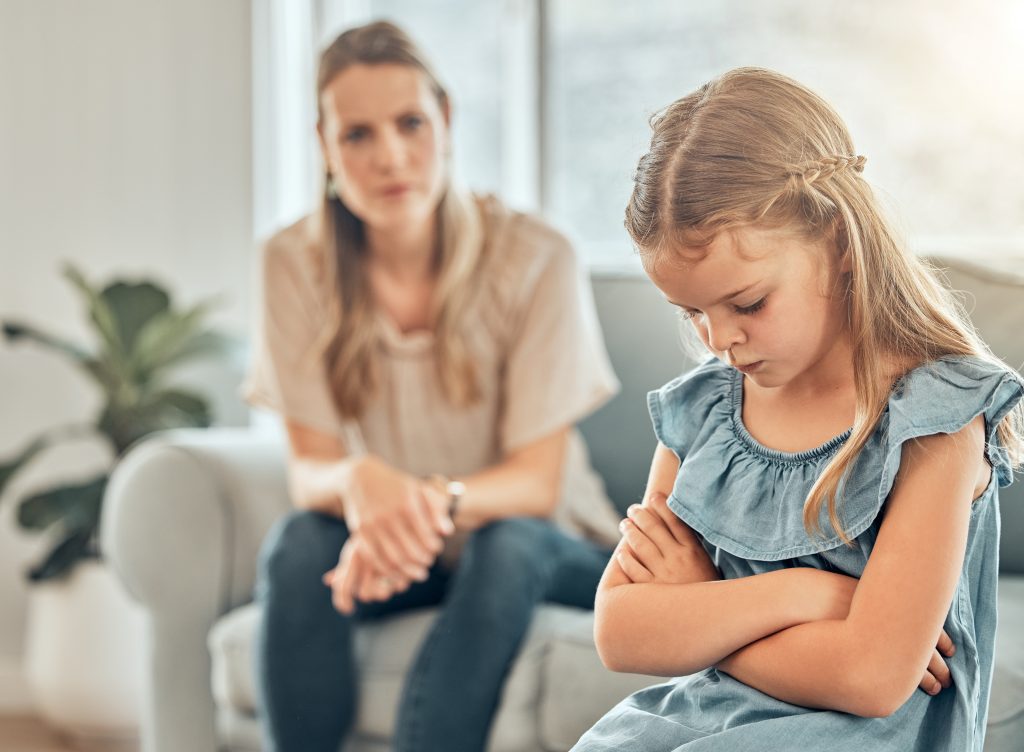
Children who are used to hearing negative words about themselves develop low self-esteem. Parents often use this language to make children understand the magnitude of their actions.
They think that this way children will suffer for what they have done.
But children don’t need to suffer to learn their lesson. What they need is a responsible adult to gently guide them.
We don’t need to belittle them for their mistakes with negative words. Those words don’t teach them anything!
They feel that they are not good enough, that they are a burden, that they are a cause of stress to others, etc. As a result, they grow up blaming themselves for coming into the world and causing unhappiness.
They develop a fear of trying new things because their mistakes have been handled badly and they don’t want to disappoint others.
Negative words make children struggle to find their true identity because they believe what we tell them.
Let’s think about that for a moment.
Does making one small mistake make your son stupid? Is he really stupid? Is he not also doing wise and considerate things for his age?
But if you call him “stupid” and do it repeatedly, he will believe it and his mind will make him think and act in a way that makes him seem right.
Let’s look at some of the most common and psychologically damaging things parents say to their children.
1. “Very good job”

I will start with two sentences that may surprise you..
“Good job” may seem like an innocuous phrase to say to children. But the phrase “good job” doesn’t tell kids much about their efforts. It is too vague!
We want children to behave well and make an effort to do good things in life because they sincerely want to. Not because they want to earn praise and please people.
I think it’s good to say nice things to kids from time to time to encourage them. But showering them with praise when they can do just fine without it can hurt their ability to be intrinsically motivated.
What to do instead: “I see you’re working hard to get good grades.”
2. “I’m proud of you”

Another seemingly innocuous expression. I often say it to my kids and until recently I thought it was good for them.
One day my daughter came running over and said, “Mommy, I helped Paul find his shoe.” I just smiled and said “okay”. Then she asked me, “Why don’t you say you’re proud of me?
That got me thinking. Was she doing nice things for others to get my appreciation? Is she looking for external validation to feel good about what she has done?
What to say instead, “ You should be very proud of yourself.”
When you use this phrase, you are shifting the focus to the child herself and she is learning that she should be proud of herself.
3. “Don’t cry over nothing“
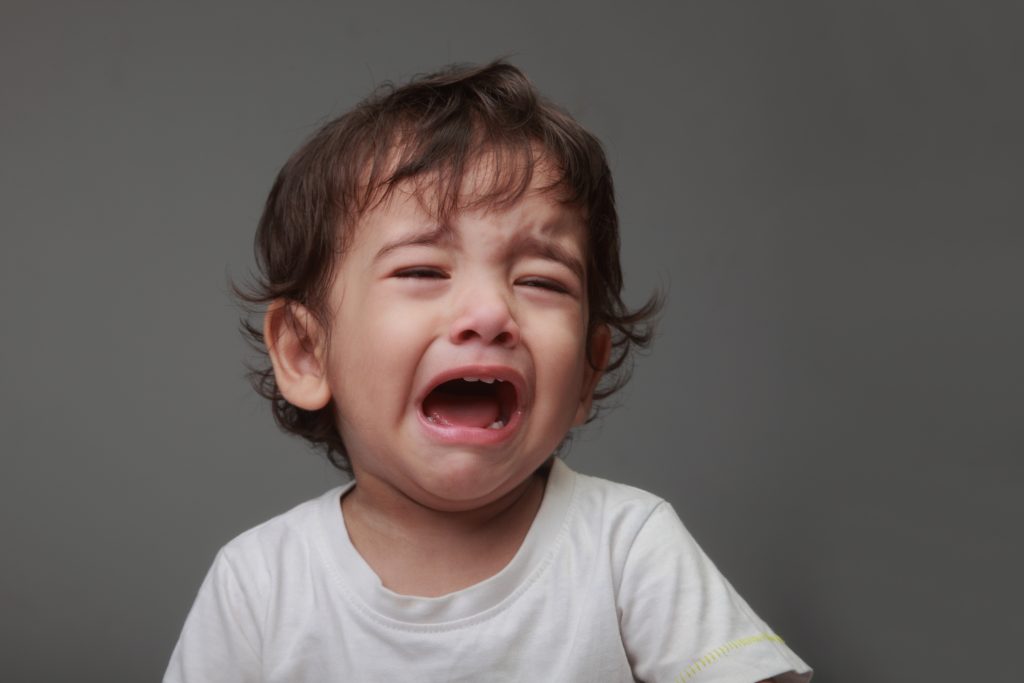
Silly for us, not for them. Let’s not devalue a child’s emotions. Because all their feelings are valid and they need to vent their frustration through tears.
It’s hard for us parents when they come running to us all the time for seemingly stupid things. But that’s because they need our attention and turn to us to share their little worries and find comfort.
It’s hurtful for children to be denied access to expressing their emotions. They shouldn’t get the idea that “my problems aren’t important to them”.
What to do instead: “I’m sorry you’re sad. If I were you, I would feel the same way.”
4. “Big kids don’t cry”
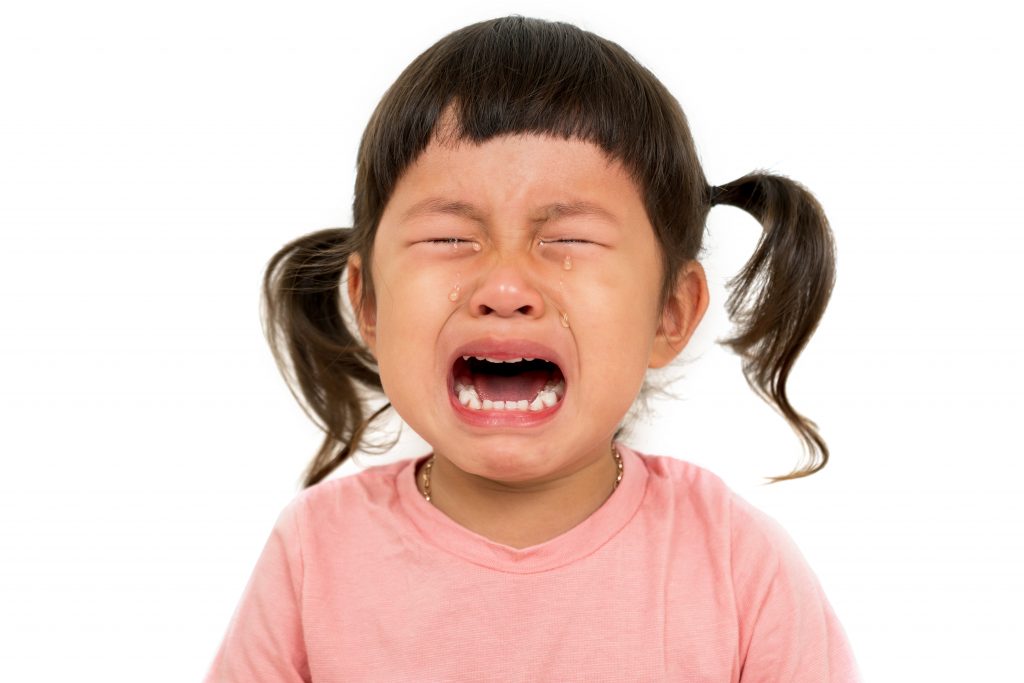
Crying is a natural reaction to strong emotions. However, we see how parents try to stop children when they cry.
Crying has so many benefits. Crying does not make anyone bad. It’s just our body trying to release stress. It helps us process emotions and get over difficult feelings.
And because children are more vulnerable and can’t control their emotions as well as adults, they cry about everything. When they cry, the best thing a parent can do is let them finish crying instead of stopping them, and offer support and empathy.
What to do instead: “I’m sorry this is hard for you. I’ll sit with you until you feel better.”
5. “Because that’s the way it is.”

This phrase is usually used by authoritarian parents who do not give their children the opportunity to say what they think. But it never works, because no human being feels good about being given lame orders.
This may work in the short term with young children, but never with older children. The better approach is to get their cooperation by finding solutions together and asking them to do what is acceptable to both parties.
What to say instead, “What’s your plan to get your homework done on time?”
6. “You’re just like your dad/mom.”

Children can behave the same way as your partner, which annoys you. But saying bad things about your partner in front of your children is never a good idea because it only upsets your partner.
What you should do instead. Don’t compare it to someone else’s behavior.
7. “When I was your age, I already knew how to do this.”

All children develop at different rates. So comparing their abilities to yours can be frustrating. In fact, it’s not a good idea to compare their progress to that of others.
It damages their self-esteem and makes them doubt their ability to achieve anything in life.
What to say instead is, “I know you’re working hard, and I have every confidence in you to learn to master what you don’t yet know.”
8. “What’s wrong with you?”

When we ask this question, the child begins to believe that something is wrong with him. Instead of gently guiding him to correct his behavior, we shame him by asking what is wrong.
And the shame of “always being wrong” or “not being good enough” can carry throughout their lives and affect their confidence to express their talents and treat people well.
What to do instead: Talk only about the bad behavior and give advice on how to correct it. Listen to what they have to say and try to find out what has motivated their behaviour and correct it appropriately.
9. “You’re really not wise”

When we tell a child that he is bad because he has done something, he begins to believe that he is a bad person because he has done something bad.
And that’s not true. Because then we are all bad people. We all make mistakes and do things we shouldn’t do.
What a child needs to learn is that what they did was wrong. But that doesn’t mean that he is a “bad person,” only that what he did was wrong. It is capable of doing so many good things.
What to do instead: “What you did was wrong. But I’m sure you can fix it
10. “Why don’t you behave like…”
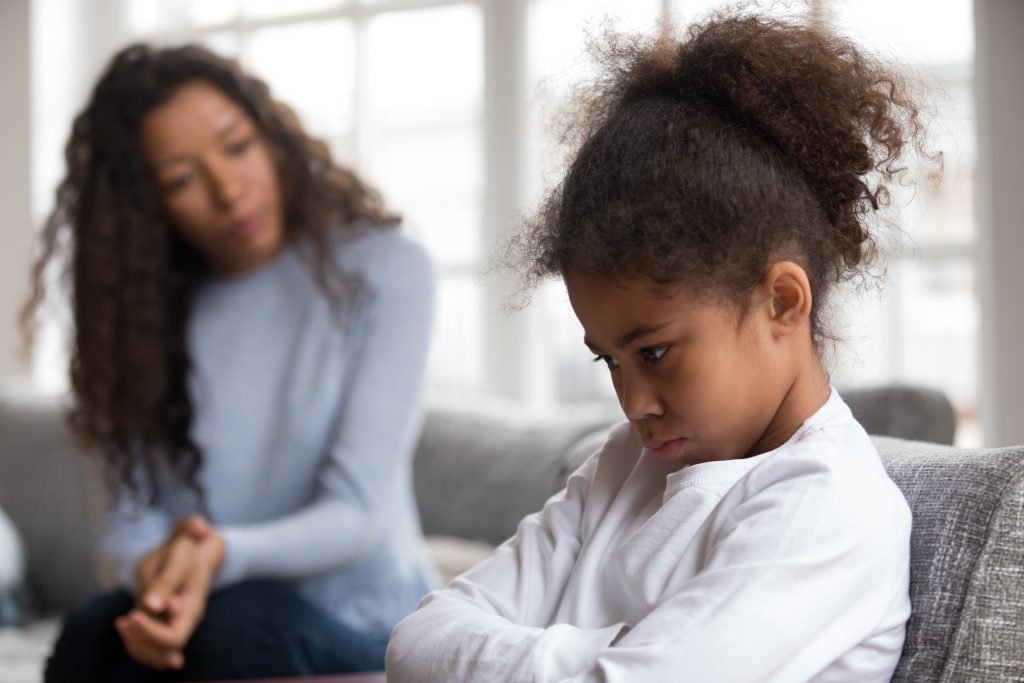
Parents usually use this phrase thinking it will motivate children to learn good behavior from others by motivating themselves. But the truth is, it’s never helped anyone.
We have to accept our children as they are, and also accept the fact that they can never act like anyone else. And we should never ask them to.
One of the side effects of this attitude is that they’ll start comparing themselves to others and feeling bad about qualities they don’t have.
What to do instead. Talk only about what the child has done, rather than making them feel inadequate by comparing their actions to someone else’s good behavior.
11. “If you keep acting like this, I’m leaving and I’m not coming back”

The truth is, sometimes the noise and chaos gets on my nerves, which is too much for my sensitive, introverted soul. But that’s no excuse to tell my kids that.
In fact, I feel bad saying it. Empty threats like that make kids feel insecure and unprotected. Children need to feel safe at home to be themselves and express their emotions freely.
They don’t feel safe when they express their strong emotions because they trigger a reaction from their parents. This can have a detrimental impact on their mental health.
What to say instead: “Everyone here is upset. Let’s take some time to calm down, and then we’ll talk.”
12. “Hurry up”
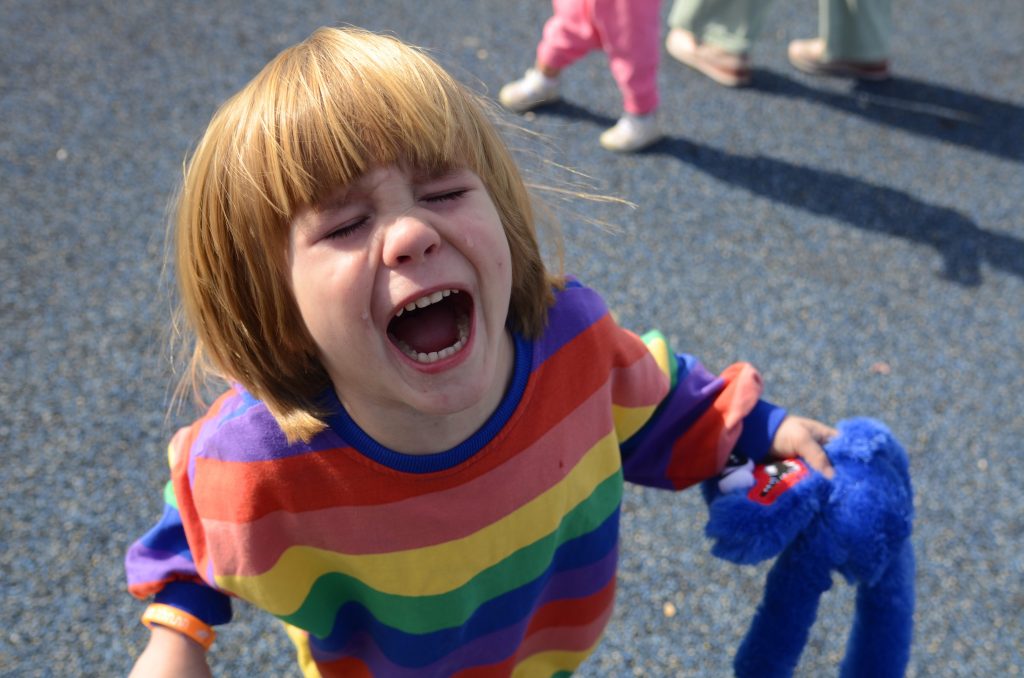
Has any parent ever told their child to “hurry up”? It’s a common expression when kids are getting ready for school or when we go out as a family.
But let’s think about why kids are slow. One reason is that they are curious and naturally learning. They like to stop and explore to satisfy their curiosity.
Another reason is that their brains are immature when it comes to understanding the concept of time.
They don’t understand the concept of time the way we do, and they can’t fully understand the consequences of being late. So they tend not to rush, even if their parent yells at them.
Rushing them creates unnecessary anxiety for both parent and child. And because of the anxiety and tension, they will not be able to concentrate fully. And because of this, the more they are asked to rush, the more they slow down.
What to do instead: instead of asking “why are children slow”, we can ask “why are we in a hurry”.
So consider slowing down whenever possible. But it’s also true that the real world works like the hands on a clock.
Instead of rushing the kids, we can make a schedule of their daily activities, leaving them enough time to do everything at their own pace.

